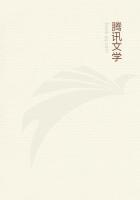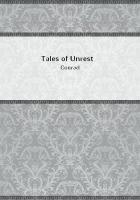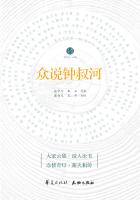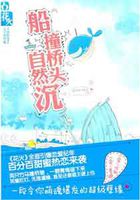And here let me say, as a general criticism, that in the Inferno are brought out in tremendous language the opinions of the Middle Ages in reference to retribution. Dante does not rise above them, with all his genius; he is not emancipated from them. It is the rarest thing in this world for any man, however profound his intellect and bold his spirit, to be emancipated from the great and leading ideas of his age. Abraham was, and Moses, and the founder of Buddhism, and Socrates, and Mohammed, and Luther; but they were reformers, more or less divinely commissioned, with supernatural aid in many instances to give them wisdom. But Homer was not, nor Euripides, nor the great scholastics of the Middle Ages, nor even popes. The venerated doctors and philosophers, prelates, scholars, nobles, kings, to say nothing of the people, thought as Dante did in reference to future punishment,--that it was physical, awful, accumulative, infinite, endless; the wrath of avenging deity displayed in pains and agonies inflicted on the body, like the tortures of inquisitors, thus appealing to the fears of men, on which chiefly the power of the clergy was based. Nor in these views of endless physical sufferings, as if the body itself were eternal and indestructible, is there the refinement of Milton, who placed misery in the upbraidings of conscience, in mental torture rather than bodily, in the everlasting pride and rebellion of the followers of Satan and his fallen angels. It was these awful views of protracted and eternal physical torments,--not the hell of the Bible, but the hell of ingenious human invention,--which gives to the Middle Ages a sorrowful and repulsive light, thus nursing superstition and working on the fears of mankind, rather than on the conscience and the sense of moral accountability. But how could Dante have represented the ideas of the Middle Ages, if he had not painted his Inferno in the darkest colors that the imagination could conceive, unless he had soared beyond what is revealed into the unfathomable and mysterious and unrevealed regions of the second death?
After various wanderings in France and Italy, and after an interval of three years, Dante produced the second part of the poem,--the Purgatorio,--in which he assumes another style, and sings another song. In this we are introduced to an illustrious company,--many beloved friends, poets, musicians, philosophers, generals, even prelates and popes, whose deeds and thoughts were on the whole beneficent. These illustrious men temporarily expiate the sins of anger, of envy, avarice, gluttony, pride, ambition,--the great defects which were blended with virtues, and which are to be purged out of them by suffering. Their torments are milder, and amid them they discourse on the principles of moral wisdom. They utter noble sentiments; they discuss great themes; they show how vain is wealth and power and fame; they preach sermons. In these discourses, Dante shows his familiarity with history and philosophy; he unfolds that moral wisdom for which he is most distinguished. His scorn is now tempered with tenderness. He shows a true humanity; he is more forgiving, more generous, more sympathetic. He is more lofty, if he is not more intense. He sees the end of expiations: the sufferers will be restored to peace and joy.
But even in his purgatory, as in his hell, he paints the ideas of his age. He makes no new or extraordinary revelations. He arrives at no new philosophy. He is the Christian poet, after the pattern of his age.
It is plain that the Middle Ages must have accepted or invented some relief from punishment, or every Christian country would have been overwhelmed with the blackness of despair. Men could not live, if they felt they could not expiate their sins. Who could smile or joke or eat or sleep or have any pleasure, if he thought seriously there would be no cessation or release from endless pains? Who could discharge his ordinary duties or perform his daily occupations, if his father or his mother or his sister or his brother or his wife or his son or his daughter might not be finally forgiven for the frailties of an imperfect nature which he had inherited? The Catholic Church, in its benignity,--at what time Ido not know,--opened the future of hope amid the speculations of despair. She saved the Middle Ages from universal gloom. If speculation or logic or tradition or scripture pointed to a hell of reprobation, there must be also a purgatory as the field of expiation, for expiation there must be for sin, somewhere, somehow, according to immutable laws, unless a mantle of universal forgiveness were spread over sinners who in this life had given no sufficient proofs of repentance and faith. Expiation was the great element of Mediaeval theology. It may have been borrowed from India, but it was engrafted on the Christian system. Sometimes it was made to take place in this life; when the sinner, having pleased God, entered at once upon heavenly beatitudes. Hence fastings, scourgings, self-laceration, ascetic rigors in dress and food, pilgrimages,--all to purchase forgiveness; which idea of forgiveness was scattered to the winds by Luther, and replaced by grace,--faith in Christ attested by a righteous life. I allude to this notion of purgatory, which early entered into the creeds of theologians, and which was adopted by the Catholic Church, to show how powerful it was when human consciousness sought a relief from the pains of endless physical torments.

